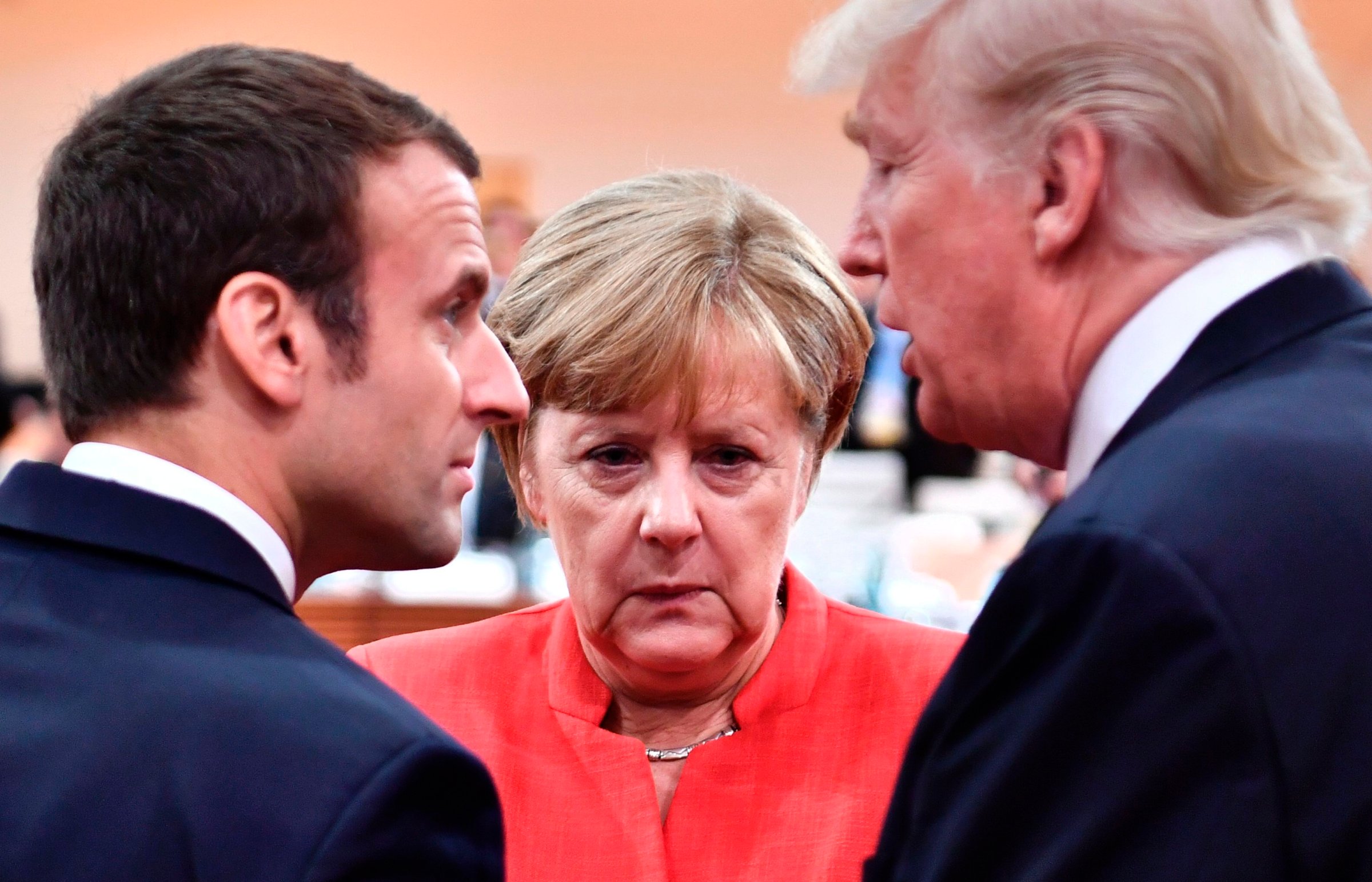
Jha is the Director of the Harvard Global Health Institute; Williams is Dean of the Harvard T.H. Chan School of Public Health.
There are 6.5 billion reasons to be disappointed by President Donald Trump’s decision to withdraw the United States from the Paris Climate Accord. Like the $6.5 billion in estimated U.S. health care costs from worsening air pollution that we are all paying for through higher insurance premiums and higher taxes.
If you have not made the connection between the current Washington, D.C., battles over health care on the one hand and the Paris Agreement on the other, you’re not alone. Though they are inextricably linked, the connection is often overlooked. The biggest impact of climate change will be on our health. Think of climate change as one big pre-existing condition that we will all have.
Most Americans understand that climate change poses a threat, but that threat appears decades off, with unclear consequences. Yet climate change is already affecting our health and the health of our children. Unless we heed these early warning signs, we will endure even greater health impacts.
This is why this week’s G20 meeting of world leaders from major developed and developing economies, including the U.S., must mark a turning point where they agree not just to defend the Paris Agreement, but to implement it. We need to return to the business of tackling climate change and move towards solutions.
Governments are together spending billions of dollars a year to promote the production of fossil fuels — oil, gas and coal — that actively contribute to air pollution, premature deaths and climate damage that are already having major impacts on our health. G20 nations should work to phase out fossil fuel subsidies urgently. Additional revenue from the elimination of these subsidies will help governments, in rich and poor nations alike, fund programs that benefit health. In 2013 alone, air pollution from burning fossil fuels cost the United States economy billions of dollars in labor output losses (because people couldn’t work productively or work at all) and even more in health care costs.
The National Climate Assessment — an interagency initiative of the United States government — has concluded that the intensity, frequency and duration of North Atlantic hurricanes have increased substantially since the early 1980s, a trend that will continue as the climate continues to warm. With more extreme storms and flooding — events like Hurricane Katrina and Hurricane Sandy — our healthcare system is going to have to make expensive preparations. After Hurricane Sandy, several hospitals were closed for more than a month.
Perhaps most ominously, Americans and people across the globe are also at growing risk of exposure to infectious disease outbreaks. Last year’s Zika outbreak vividly demonstrated how previously overlooked diseases can spread quickly and unpredictably as the geographic range of disease vectors such as mosquitos and ticks changes. Recent outbreaks of other diseases such as Ebola remind us of the risk of a pandemic on the scale of the 1918 Spanish Influenza outbreak, whose centennial we will mark next year. That outbreak killed around 50 million people worldwide, including 675,000 Americans. Although it is not possible to know with certainty when or what the next outbreak will be, we would be foolish to ignore climate change’s contribution to this deadly threat.
It took U.S. leadership to forge the Paris Agreement, and ongoing U.S. leadership was critical to sustain that global agreement and make the world a healthier place not just for our kids and grandkids but even for us. We commend the leadership of governors and mayors and academic leaders across the nation who are making clear that while President Trump is abandoning the Paris Accord, America is not.
G20 countries need to be the champions of climate action, to take the lead from the thousands of cities, regions, businesses and investors who have come forward with increased ambition and continue to show their support for the Paris Agreement. We can learn from civil society who came together recently to present their vision of “the world we want” to the G20, bringing together more than 200 NGOs from over 60 countries. We can also learn from the industry-led initiative on climate-risk disclosure — which has been well-received by investors, asset managers and the like all over the world — encouraging companies to become transparent about climate change risk on their bottom line. When the science is strong that climate change will have devastating effects on our health, collective action and ambitious leadership are the only ways forward.
We stand with them, believing it has never been more urgent to ensure that Americans understand and prepare for the health risks we all face from climate change. Prevention is the best medicine, and acting now to mitigate these risks by remaining in the Paris Agreement is both morally imperative and fiscally sound. Climate change is one pre-existing condition we know how to cure.
More Must-Reads from TIME
- How Donald Trump Won
- The Best Inventions of 2024
- Why Sleep Is the Key to Living Longer
- Robert Zemeckis Just Wants to Move You
- How to Break 8 Toxic Communication Habits
- Nicola Coughlan Bet on Herself—And Won
- Why Vinegar Is So Good for You
- Meet TIME's Newest Class of Next Generation Leaders
Contact us at letters@time.com